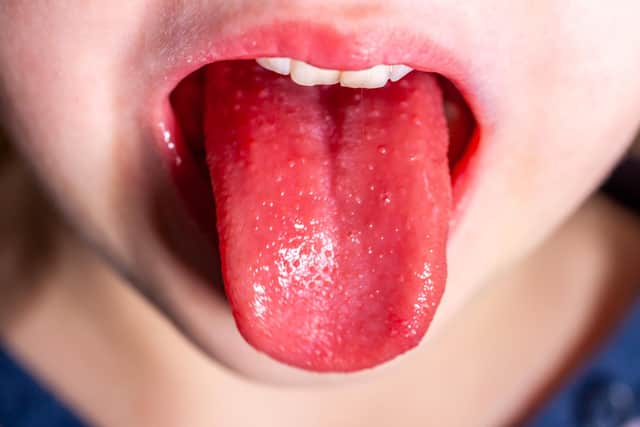Scarlet fever cases confirmed in Scarborough borough - here are the symptoms to look out for
and live on Freeview channel 276
Latest figures issed by the UK Health Security Agency, for up to Dec 4, show there were two confirmed cases of scarlet fever in Scarborough borough – although Caedmon College Whitby has sent a letter to parents this week to say a small number of students have been diagnosed with suspected or confirmed scarlet fever.
Scarlet fever is a highly contagious infection caused by the Strep A bacteria.
Advertisement
Hide AdAdvertisement
Hide AdSymptoms include a sandpapery skin rash and a white coating on the tongue.


It used to be a very serious infection, but thanks to antibiotics most cases these days are mild and easily treated.
However, in very rare occasions, the bacteria that causes scarlet fever - Strep A - can get into the bloodstream and cause a potentially deadly infection called invasive Group A Strep (iGAS).
Parents are urged to seek medical advice if their child is getting worse, has a fever, is eating much less than normal or is very tired or irritable.
Advertisement
Hide AdAdvertisement
Hide AdFigures for the most recent week, up to December 4, show the Isle of Wight had the most cases that week, at 32.
Dr Colin Brown, deputy director of the UK Health Security Agency said: “We are seeing a higher number of cases of Group A strep this year than usual.
"The bacteria usually causes a mild infection producing sore throats or scarlet fever that can be easily treated with antibiotics.
"In very rare circumstances, this bacteria can get into the bloodstream and cause serious illness – called invasive Group A strep (iGAS).
Advertisement
Hide AdAdvertisement
Hide Ad“This is still uncommon; however, it is important that parents are on the lookout for symptoms and see a doctor as quickly as possible so that their child can be treated and we can stop the infection becoming serious.
“Make sure you talk to a health professional if your child is showing signs of deteriorating after a bout of scarlet fever, a sore throat, or a respiratory infection.”
Rates of scarlet fever are above average this year, but are not at record highs – 2018 saw particularly high levels, with nearly 32,000 cases reported across England and Wales.
So far this year, just over 23,000 cases have been reported.